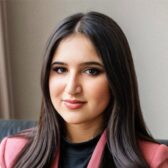
We at Unpacked are big fans of “The Bachelor” franchise — more particularly when it gets Jewish. We loved when contestant Ariel Frenkel took the bachelor to a Jewish deli and when “Golden Bachelor” finalist Leslie Fhima rocked a Star of David.
On Season 21 of “The Bachelorette,” Jeremy Simon brought a deep discussion of his Jewish heritage and raising interfaith children. Jeremy, who many fans joked went under the radar for most of the season, entered the competition driving a sports car — which was promptly stolen by another contestant to woo Jenn Tran.
So who is Jeremy Simon? Let’s unpack his run on “The Bachelorette” and his Jewish identity.
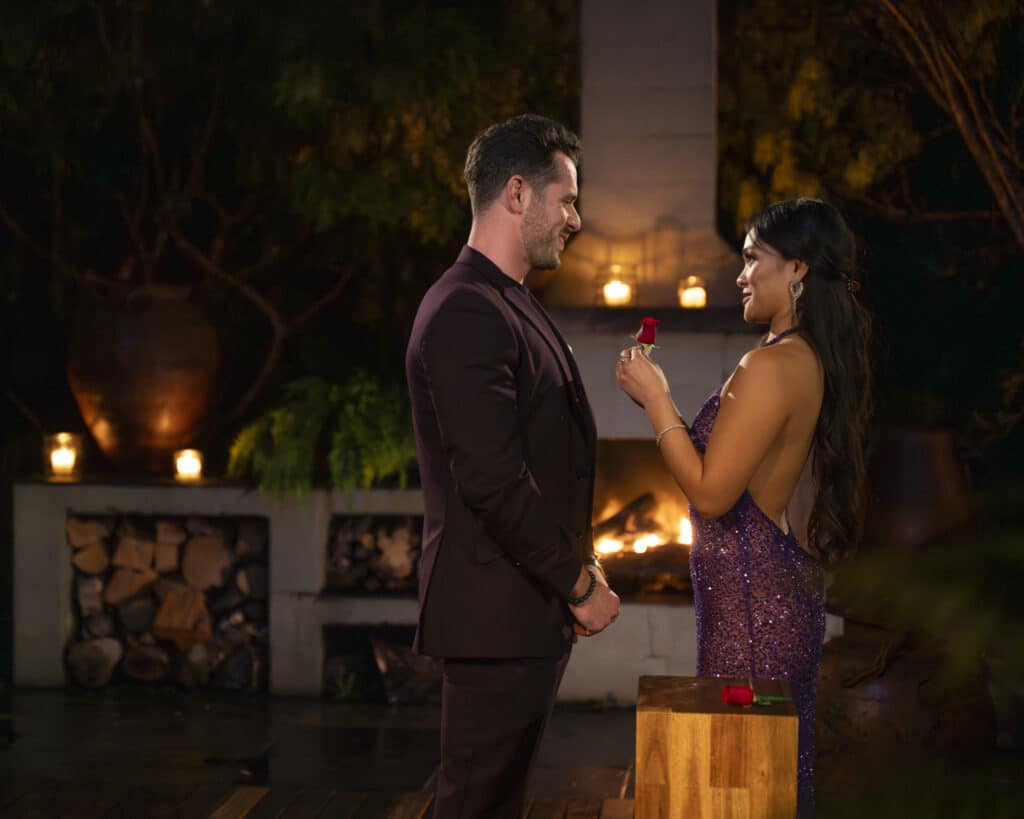
Is Jeremy Simon from “The Bachelorette” Jewish?
Jeremy is a 29-year-old real estate investor and property manager, initially from Fairfield, Conn. He now lives in New York City, where he says “no one gives a sh-t” about his stint on reality television. He was born to Jewish parents Greg and Karen Simon and has two sisters, Emily and Lindsey.
He was cast in this season in an attempt to propose to Jenn, a 26-year-old physician’s assistant student living in Boston. However, she is from the town of Hillsdale, New Jersey, where there is a sizable Jewish population.
Jeremy graduated with a Bachelor of Science in Engineering and Math from the University of Connecticut in 2016. During his time in college, he pledged Jewish fraternity Alpha Epsilon Pi, which he spoke about on the show.

In his bio for “The Bachelorette,” Jeremy said that his dream date for a partner to meet his family would be bringing a girl home for his Passover seder.
On his LinkedIn, Jeremy lists that he’s a member of the pro-Israel lobbyist group AIPAC.
Harking back to Jewish summer vacations past, Jeremy owns a property in the Catskills. Per Hey Alma, The Airbnb listing for the home is called “Morning Wood,” which we are still cringing over.
Jeremy arguably had the most Jewish one-on-one date in “Bachelorette” history
It wasn’t until the final week before hometowns — when the lead meets a finalist’s family — that Jeremy finally had his one-on-one date with Jenn.
The duo explored Pike Place Market in Seattle, where they had a time full of laughs and deep conversations — about everything except their feelings for each other.

They finished their night off at the Chihuly Garden and Glass Museum, where they discussed their religious differences and the possibility of raising an interfaith family.
“Being Jewish culturally is very important to me,” Jeremy said. “I don’t expect you to convert. I don’t need you to convert. But eventually, I do want kids.”
Jenn, who is Buddhist, loved going to temple for holidays and was hoping to share that with a partner with a similar view on “life, culture, tradition, family and love.”
@lovetoseeitpod We love to see a positive spotlight on Judaism and Buddhism, two cultures/religions we don’t usually see featured on thebachelorette! So glad Jeremy and @Jenn Tran got to share this side of themselves. #bachelornation
♬ original sound – Love To See It
Jeremy agreed that he was also looking for someone to share his heritage with. He discussed his Ashkenazi background and his hope to raise Jewish kids. He said that his family’s history during World War II and his mom’s stalwart dedication to Jewish values inspired him to pass the traditions on.
They agreed that they’d love to raise an interfaith family and Jenn added that she often does Shabbat dinners with her Jewish friends in Miami, adding that it “would be totally cool to have our kids grow up as Jewish.”
“Honestly, the idea of Jewish-Buddhist kids sounds fun. I feel like it would be fun with you,” Jeremy said, with Jenn saying she’s “so excited to meet your mishpacha.”
Jeremy felt that it was important to approach the question of having a Jewish family before he took Jenn home to his family. He said that the relationship couldn’t have continued if he wasn’t honest with her about his intentions for his future.
“If I’m going to ask her to have Jewish kids, I need to be open to what she wants as well. It was a great, beautiful, open conversation. It was still fun, too…just the idea of breeding Jewish Buddhist kids,” he told Glamour.
“I could get into specifics about Judaism, but to me it’s more cultural. I think about the holidays and my family being so close together. And I do believe a big reason for that is because I was raised Jewish and because it brings you together. So I couldn’t imagine a family like my family in the future not having that kind of closeness. I think the idea of celebrating Shabbat every week is great, but I don’t celebrate Shabbat every week, [so] when she said that, I’m like, “Oh, beautiful,” he added.
Jeremy descends from a long line of rabbinical legends
During their one-on-one, Jeremy referenced that his maternal great-great-grandfather was “a very famous rabbi in Lithuania” who “died in the country because he wouldn’t leave during World War II.”
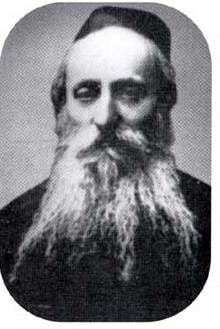
That rabbi, Jeremy revealed to Alma, was Avraham Dov-Ber Kahana Shapiro, who served as the last chief rabbi of Kovno, now known as Kaunas, Lithuania.
Born in modern-day Belarus in 1873, Shapiro came from clerical roots. He was the great-great-great-grandson of Rabbi Chaim Volozhin, the man who established the highly-revered Volozhin Yeshiva, which is referred to as the first modern Yeshiva.
Shapiro was an “ilui,” prodigy in Torah study while in school. He was appointed chief rabbi of his city in 1923.
World War II broke out while the rabbi was traveling to Switzerland for medical treatment. His son, attorney Yerucham Yehuda Leib Shapiro, begged his parents to join him in New York City and escape the nazis. The Shapiros refused to leave Europe while their congregants remained.
“The captain is the last to abandon his sinking ship, not the first,” he wrote in a letter to Yerucham. “At this time of danger, my place is with the people of my city. I am going to Kovno.”
Like 90% of the 30,000 Jews who were stuck in the Kovno Ghetto, Shapiro did not live to see his people liberated by the Soviets in 1944. He died at the age of 69 from illness on Feb. 27, 1943.
Yerucham published a book of his father’s writings, a responsa titled “Devar Avraham.”
Jeremy’s tense hometown date
Jenn and Jeremy traveled back to his hometown to meet his family on one of the show’s stereotypically bad dates.
Karen admitted to the cameras that she was skeptical about the relationship’s future.
“When she was named the bachelorette, she described what she looks for in a guy, and I said to myself, that is not Jeremy,” she said.
While Jeremy cheekily said that Jenn liked him more than the other three remaining men, Karen reminded him that they are still in the picture.
She later scathingly told Jeremy that he needs to take the process and the possibility of an imminent engagement seriously, saying, “It’s not a game. It’s not a show. It’s your life.”
“Seriously, I want you to think long and hard what you want going forward because this is such a commitment,” she later said.
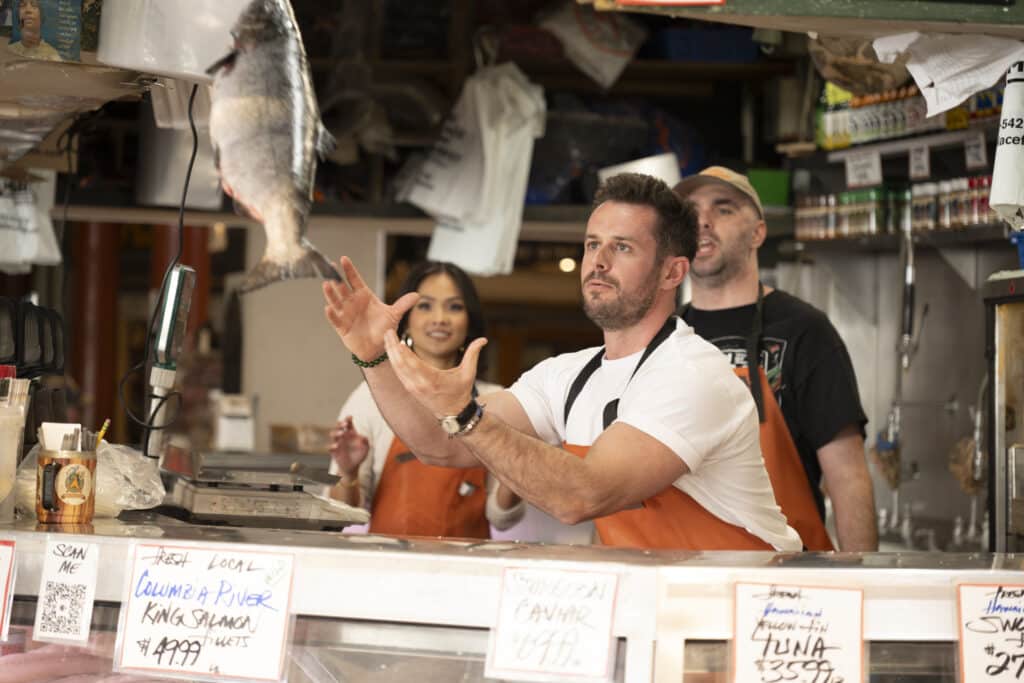
While Karen said that she liked Jenn, she pointed out that she barely knew her. She reiterated her worry for Jeremy and their relationship since the pair hadn’t truly gotten serious with one another nor had they expressed their feelings for one another. They both simply said that they liked laughing and having a good time together, something that Karen said wasn’t enough to sustain a marriage.
“I’m skeptical just because I don’t even know if it’s love because I don’t know that they really discussed how they feel. So if it’s not love, it definitely shouldn’t be engagement,” Karen said.
Jeremy’s sister, Emily, agreed with her mother. When she spoke to Jenn, Emily said she was unsure whether her brother was ready to get married, and expressed her concern that neither had expressed their feelings yet in the process.

After hometown week, Jeremy was sent packing by Jenn.
Following his elimination, Jenn said that while Jeremy was “someone that [she] wanted to see a future with,” she “just didn’t see it fully there.”
Jenn will choose between her final two men, Marcus Shoberg and Devin Shrader on the season’s finale Tuesday, Sept. 3.
For Jeremy, however, he’s been surprised by the positive reaction he’s gotten from the Jewish community.
“The amount of DMs from Jewish mothers being like, ‘You should date my daughter.’ It’s crazy. It’s crazy,” he told Glamour. While he has yet to take any of them up on their offer, he hasn’t ruled out the possibility.
Judaism in “The Bachelor” franchise
In recent years, there has been increased Jewish representation in “The Bachelor” franchise after years of criticism over a lack of diversity.
On the inaugural season of “The Golden Bachelor,” Leslie Fhima led the women in “Hava Nagila” in the pool. Jason Alabaster was the runner-up on Gabby Windey‘s season while donning a mezuzah all season. While vying for Zach Shallcross’ heart, Ariel Frenkel spoke about her pride for the Ukrainian Jewish community.
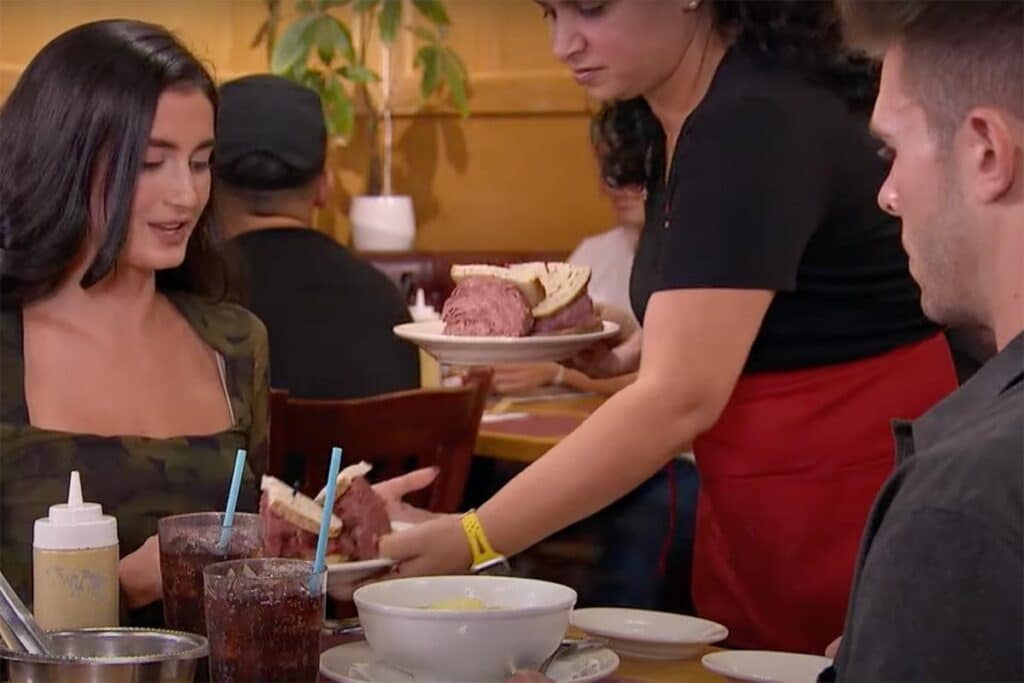
However, for much of the show, contestants’ Christian beliefs have been central to the show’s storylines from Tayshia sending home Ivan after learning that he was not a practicing Christian; Matt James leading his contestants in prayer; and the iconic Hannah Brown scene where she says “I have had sex, and Jesus still loves me” to that season’s villain, Luke Parker.
The increased Jewish representation has become a fresh air in the franchise, and hopefully, set the stage for further Jewish contestants.
Jason Mesnick, the first and only Jewish Bachelor in the franchise’s history, said on a 2020 podcast that the ABC dating show was skeptical about casting him because of his Judaism.
“As a network, ABC is always conscious of their advertisers. Because I had a Jewish background, they were saying, ‘We don’t know if America’s ready for that type of thing,’” Mesnick said.
He also alleged that they “filmed a bunch of Jewish things” like spinning dreidels but “everything was cut out.”
At his wedding to Molly Malaney, Mesnick claimed that ABC refused to let him break the glass or do Hava Nagila.
Jewish Bachelorette Andi Dorfman’s season did not mention her Judaism at all.
Originally Published Sep 2, 2024 11:08AM EDT
